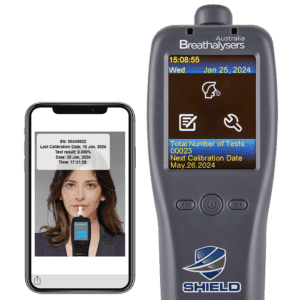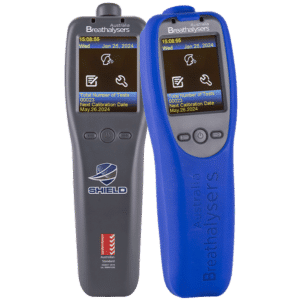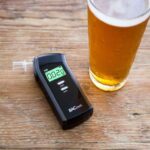Accurate Personal Breathalyzer: The Need To Know
02 October, 2023
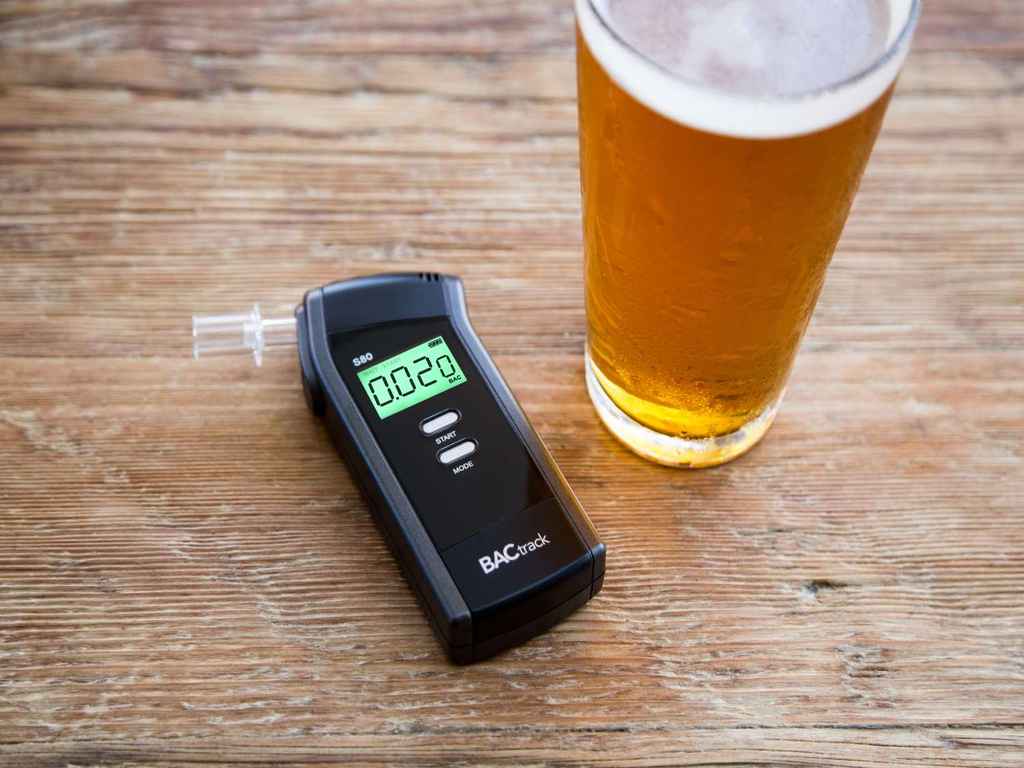
Accurate personal breathalyzers are crucial for ensuring safety. Precision matters, as even slight errors can lead to dangerous consequences. Factors like mouth alcohol, user errors, and sensor types can impact Blood Alcohol Content (BAC) readings. Mouth alcohol, from recent drinks or mouthwash, can falsely elevate BAC. User errors, like improper blowing, affect reliability. The type of sensor used also influences accuracy. Reliable breathalyzers are vital for making informed decisions about alcohol consumption and preventing impaired driving incidents.
A personal breathalyzer is a perfect tool for individuals who want to ensure they are not impaired before driving. This device usually has a power button, an auto-off feature to conserve battery life, and an LCD display. Additionally, this handheld device often comes with extra mouthpieces for hygiene purposes. This article will present the significance of accuracy in personal breathalyzers, including the factors that can influence the results.
Why Accurate Personal Breathalyzer is Important
Accurate personal breathalyzers hold great importance for individuals for several reasons. Firstly, they allow people to effectively monitor their alcohol consumption. By providing accurate readings, users can make informed decisions about whether it is safe to drive or engage in other activities. Accuracy prevents people from mistakenly overestimating their sobriety and risking harm to themselves or others.
Secondly, these convenient tools assist in legal compliance. It is essential for individuals to know their BAC in relation to the legal limit in their jurisdiction. By using reliable personal breathalyzers, they can gauge whether their alcohol level falls within the legally acceptable range. Consequently, they can avoid facing the penalties of exceeding the legal driving limit. These include fines, license suspension, alcohol interlock installation, and imprisonment.
Lastly, accurate personal breath testers promote health awareness. Excessive alcohol consumption can have detrimental effects on one’s physical and mental well-being. By effectively measuring blood alcohol concentration, individuals can gain a clearer understanding of the impact of alcohol on their health. Accurate devices enable users to remain cognizant of their alcohol intake, encouraging responsible drinking habits.
Types of Sensor Technology
- Fuel cell sensor technology: often used in professional-grade breathalyzers, utilises a chemical reaction between the alcohol in the breath and a fuel cell. The reaction generates an electrical current that is directly proportional to the amount of alcohol present.
- Semiconductor oxide sensor: relies on the changes in electrical resistance caused by the interaction between the alcohol molecules and a semiconducting metal oxide.
- Spectrophotometer: operates by analysing the absorption of light by the alcohol molecules in the breath, which correlates to the concentration of alcohol.
- Infrared spectroscopy: uses an infrared beam of light to detect and analyse the alcohol molecules in the breath.
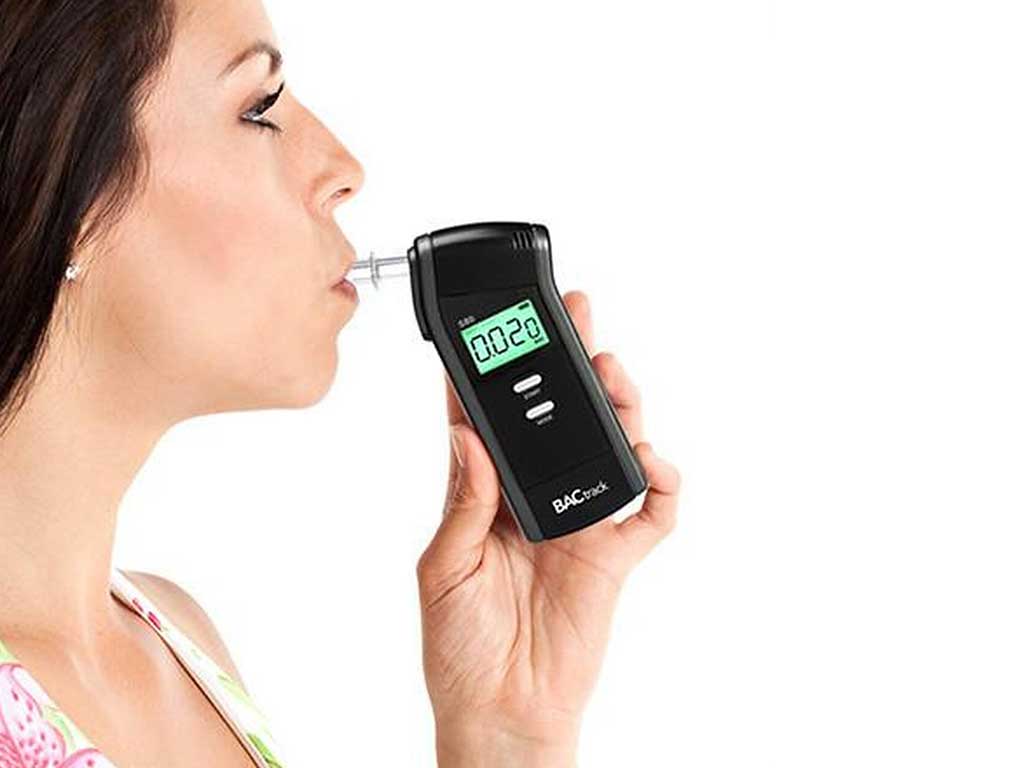
Factors that May Affect an Accurate Personal Breathalyzer
There are certain factors that can affect the results of an accurate personal breathalyzer. For instance, mouth alcohol can contribute to inaccurate readings. It refers to the presence of alcohol vapour or liquid in the oral cavity, typically in the mouth and throat. This can occur due to recent consumption of alcohol-containing products, such as mouthwash or certain medications. The alcohol in the mouth can lead to a falsely high BAC reading.
Additionally, operator error can also impact the BAC readings. Rapid, shallow, or irregular breathing can affect the flow of air into the device. This alters the concentration of ethanol vapour detected by the sensor. Therefore, users should maintain a consistent, steady breath flow during the testing process to ensure more accurate results.
Lastly, the type of technology used in the portable breathalyzer. Devices that use fuel cell technology exhibit high accuracy and reliability. These sensors work by electrochemically oxidising alcohol molecules, providing police-grade accuracy in measuring BAC. Additionally, regular calibration and maintenance of the device are crucial to ensure consistent readings over time.
Testing Guidelines
Using an accurate breathalyzer is simple and can provide peace of mind when it comes to monitoring blood alcohol levels. To conduct a test, begin by inserting into the device a beta cup or a replaceable mouthpiece. Next, users need to take a deep breath and blow into the mouthpiece. They should blow steadily and continuously.
After a few seconds, the device will display the BAC level, giving a reading of the individual’s alcohol concentration. However, like any device, the breathalyzer may have a margin of error too. It is recommended to allow for a period of time after consuming alcohol before testing.

Accurate Personal Breathalyzer: Are There Risks of False Readings?
Manufacturers design accurate personal breathalyzers to provide reliable readings of blood alcohol levels. However, there are still risks of false readings. Aside from mouth alcohol, user error, sensor technology and calibration, environmental factors can significantly affect the accuracy of personal breathalyzers. For instance, variations in temperature and humidity can impact the device’s performance, leading to inaccurate readings.
Additionally, the timing of the test. Alcohol takes time to fully absorb into the bloodstream, and breathalyzers may not immediately detect alcohol after consumption. Testing too soon or too late after drinking can result in false readings, either underestimating or overestimating the actual BAC. Therefore, individuals should wait at least 15 to 30 minutes after their last alcoholic drink before taking a breathalyzer test.
The potential consequences of false readings can be significant, especially when it comes to legal implications. Relying on inaccurate results can lead to wrongful driving under the influence (DUI) charges or falsely believing that one is below the legal limit. To mitigate these risks, it is crucial to emphasise the importance of follow-up testing and confirmation to ensure accurate results.
Legal BAC Limit
In New Zealand, the legal BAC limit for driving is 0.05%. If a person’s BAC goes above it, the law considers them over the limit, leading to potentially serious consequences. Law enforcement officers may issue a $200 infringement fee and assign 50 demerit points to drivers caught.
Additionally, their driver’s license will be suspended for three months. For those who have a BAC level above 0.08% or refuse to undergo a breath test, they face criminal charges. If convicted, they may receive a fine of up to $4,500, a six-month license suspension, and in some cases, imprisonment.
Conclusion
Accurate personal breathalyzers play a crucial role in ensuring safety, legal compliance and promoting health awareness. These devices provide accurate readings for informed decisions on alcohol consumption and safe activities like driving. They also assist in avoiding legal penalties by helping users stay within the legal alcohol limit. Additionally, accurate breath testers promote health awareness. To use them effectively, one should insert a mouthpiece, blow steadily, and wait for the BAC reading.
Several factors can affect the accuracy of personal breathalyzers, including mouth alcohol, user error, sensor technology, and environmental conditions. The timing of the test is also critical. These factors can lead to false readings, which can have serious legal consequences. Therefore, individuals should wait at least 15 to 30 minutes before testing and consider follow-up testing for confirmation. Regular calibration and use of reliable sensor technology can also contribute to more accurate and dependable readings.



















